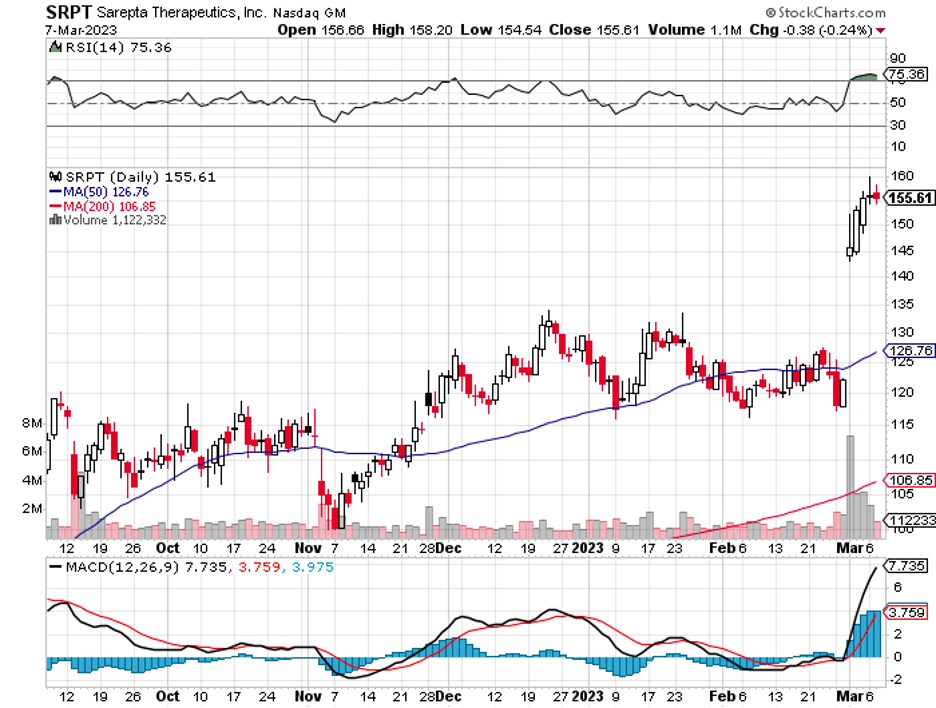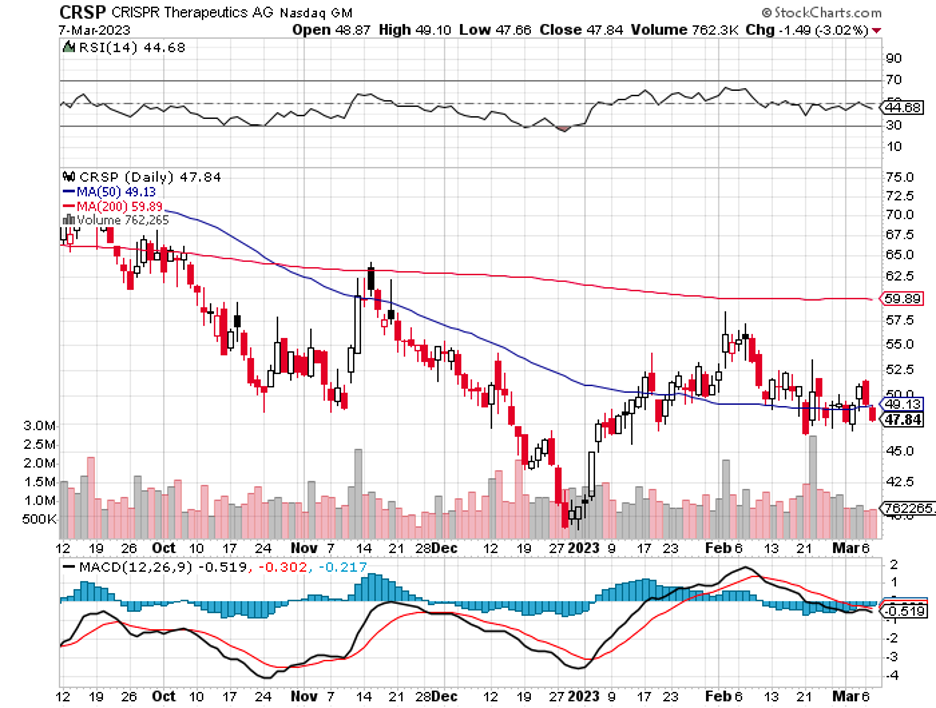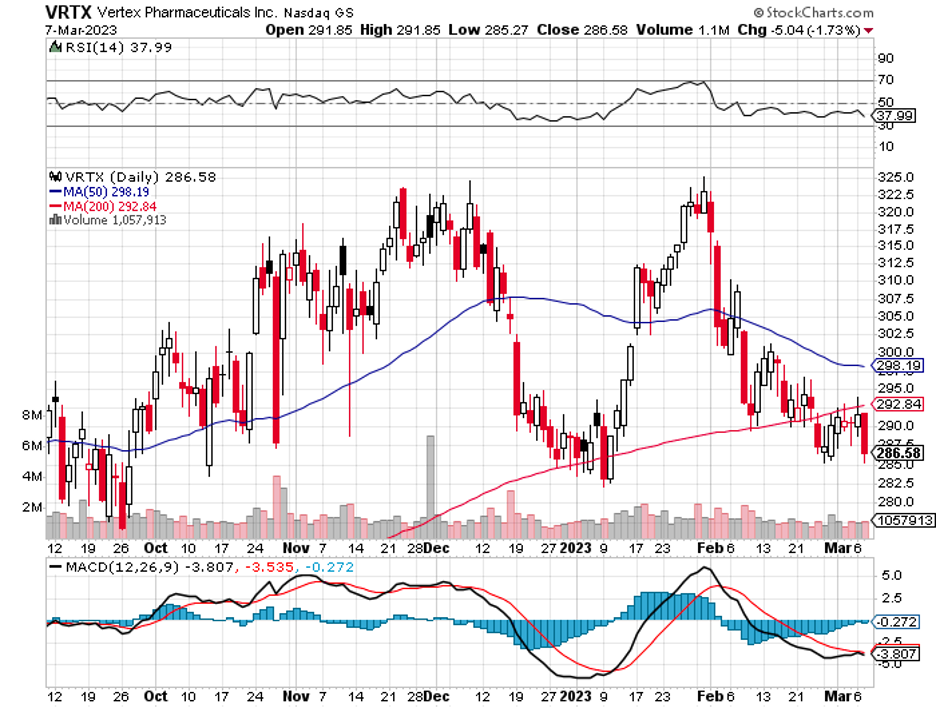The True Game-Changers with Biotech
These days, the stock market is so scrutinized that there are only a handful of sectors where an investor can find undervalued stocks capable of outperforming an index fund.
The biotechnology world is one of these industries, and now is a great time to invest in it.
The potential for the majority of biotechnology companies is not really their current earnings or even their valuations. It’s actually hinged on whether these businesses could deliver positive clinical results for potential blockbuster treatments and whether the FDA approves the candidates. No matter how hard you look, you can’t easily find these types of information in companies' income statements and balance sheets.
Actually, the widely diversified SPDR S&P Biotech (XBI) has declined by over 50% since its peak of $174 per share in February 2021. One of the critical reasons biotech dropped in the past two years is the rise of dodgy IPOs, which inevitably collapsed and notably lowered investors’ confidence in the sector. Another reason is the rising interest rates, particularly in 2022, which forced many biotech companies to borrow money just to sustain their research operations.
These past weeks, though, valuations have become attractive. Rates have also been noticeably rising, and opportunities are starting to present themselves. Since 2022 was the year that focused on multiple clinical trials, 2023 is anticipated to be the year for new product launches.
Currently, the FDA has at least 75 new biotech candidates awaiting regulatory approval. This means 2023 could easily surpass 2018, when 56 drugs were approved, as the year with the most approvals.
All these will only benefit you if you find the right biotechs, especially with the word “game-changing,” which seems to get tossed around too casually in the biotech world. The truth is, many things are described as “game-changing” and “groundbreaking” when they are not. Still, there are exceptions.
One of the exceptions is Sarepta Therapeutics (SRPT). This biotech has a gene therapy treatment targeting muscular dystrophy, which is anticipated to receive FDA approval by May 2023.
Duchenne muscular dystrophy (DMD) is a genetic disorder that primarily affects boys, although in rare cases, it can also affect girls. It is caused by a mutation in the gene that provides instructions for making a protein called dystrophin, which is essential for muscle function and stability.
Without enough functional dystrophin, muscles become weak and damaged over time, leading to progressive muscle weakness and wasting. There is currently no cure for DMD, but there are treatments available that can help manage symptoms and improve quality of life.
Aside from Sarepta, other companies working on treatments for this condition include Pfizer (PFE) and Solid Biosciences (SLDB). However, Sarepta leads the rest in terms of clinical progress.
The global market for Duchenne muscular dystrophy treatment was valued at USD 2.4 billion in 2020 and is projected to increase at a compound annual growth rate (CAGR) of 40.5% between 2021 and 2028.
Another exception is CRISPR Therapeutics (CRSP), which is poised to play a significant role in the gene editing movement in the biotech world.
The company has been working with Vertex Pharmaceuticals (VRTX) on an exciting gene-editing treatment, named exa-cel, which targets rare blood diseases, sickle cell disease and beta-thalassemia.
Exa-cel uses CRISPR/Cas9 gene-editing technology to modify a patient's own blood-forming stem cells outside the body, with the goal of correcting the genetic mutation that causes these blood disorders. Aside from being a game-changer for patients with these conditions, this therapy could alter the financial landscape of CRISPR Therapeutics as it would rake in billions in revenue for the company.
If the FDA gives the green light for exa-cel, CRISPR and Vertex become red hot stocks to own. Meanwhile, having an approved rare disease gene-editing therapy in its lineup, plus its modest valuation of $3.8 billion, would make CRISPR an extremely attractive acquisition candidate.
The biotechnology sector has experienced significant growth in recent years, driven by advances in technologies such as genomics, gene editing, and synthetic biology. These technological advancements have enabled biotech companies to develop more precise and targeted therapies, potentially revolutionizing the healthcare industry.
While the biotechnology sector offers many promising opportunities, it is also a highly competitive and risky industry. Biotech companies often face significant regulatory hurdles and long development timelines, and many of their products fail in clinical trials. Additionally, biotech companies require substantial capital investments, which can be challenging to secure.
Investors looking into adding game-changing companies to their portfolio should consider Sarepta, CRISPR, and Vertex. I recommend you buy the dip.






